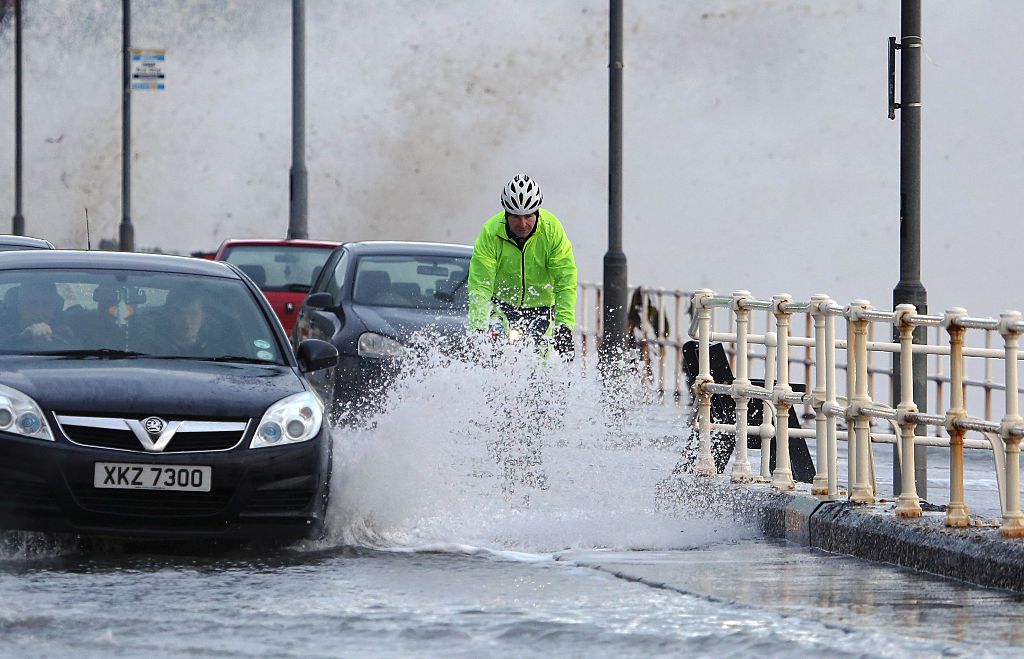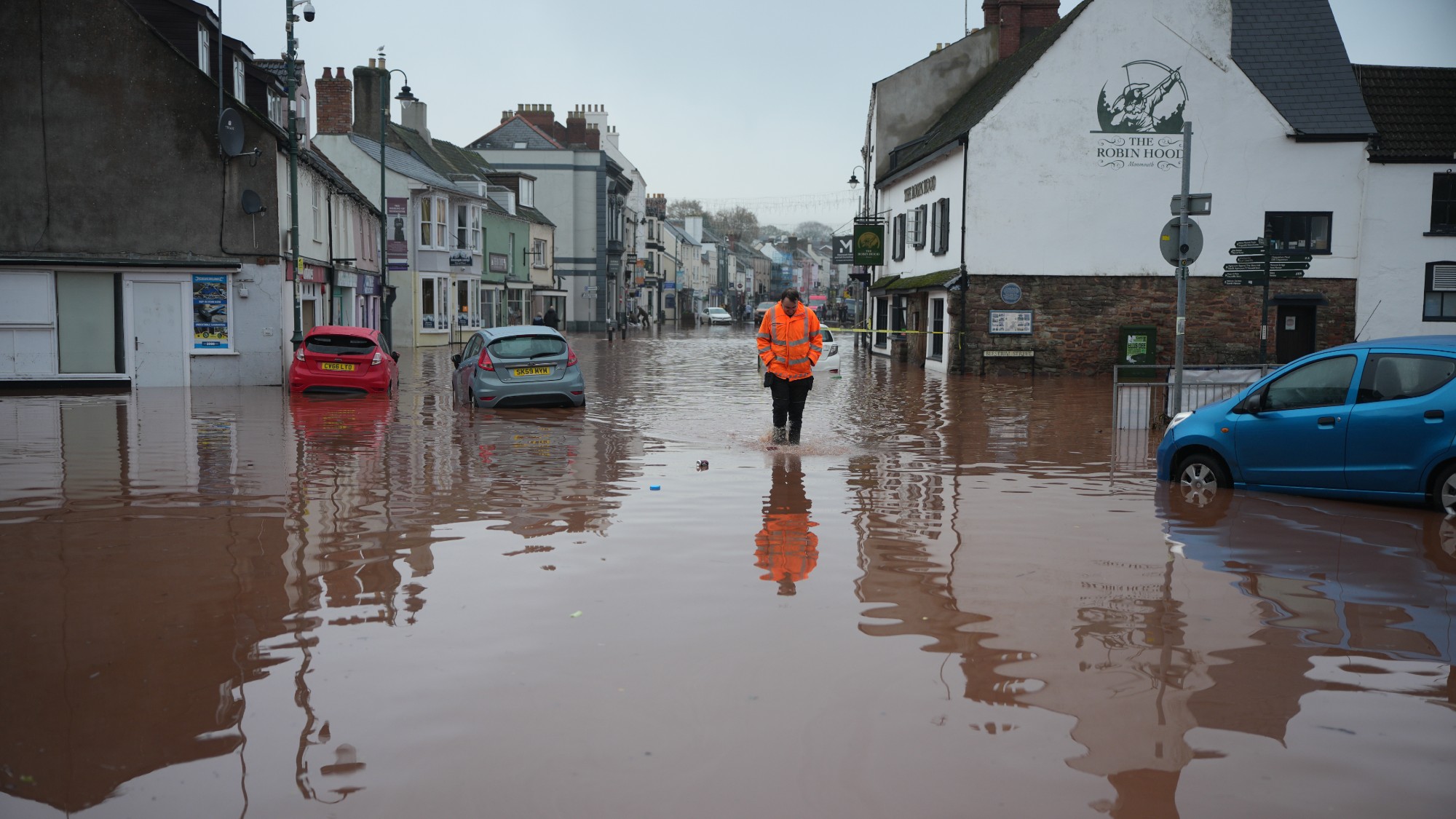Ocean levels are rising much faster than at any time in 28 centuries, sobering new studies show


The Earth is exiting a long period of stable ocean and climate levels during which human civilization grew and flourished, and it's almost certainly due to human activity, scientists in the U.S. and Germany said in a pair of papers published Monday in the journal Proceedings of the National Academy of Sciences. One study, led by Rutgers climate scientist Robert Kopp, mapped out changes in sea levels around the globe over the past 2,800 years; oceans rose or fell no more than 1.5 inches a century from ancient Rome's founding until the Industrial Age in the 1800s, the study found, but rose 5.5 inches in the 20th century alone, accelerating to a rate of 12 inches a century by 1993.
The researchers blamed the increasing sea levels on rising global temperatures they and almost all other scientists attribute to the burning of fossil fuels. "Physics tells us that sea-level change and temperature change should go hand-in-hand," Kopp said. "This new geological record confirms it." Kopp and his team estimate that sea levels will rise 22 to 52 inches by 2100 at the current rate, or 11 to 22 inches if nations fully enact the global climate change treaty negotiated in Paris last year.
The second paper, led by Matthias Mengel of Germany's Potsdam Institute for Climate Impact Research, similarly estimated that sea levels will rise three to four feet by 2100 if humans don't curb carbon emissions — roughly the same range predicted in 2013 by the United Nations Intergovernmental Panel on Climate Change. Both papers acknowledged that there were significant unknowns in their analyses, but not in a way that should make humanity in general and coastal dwellers in particular feel any safer: If the massive ice sheets of Greenland and Antarctica melt, as seems likely, most bets are off.
The Week
Escape your echo chamber. Get the facts behind the news, plus analysis from multiple perspectives.

Sign up for The Week's Free Newsletters
From our morning news briefing to a weekly Good News Newsletter, get the best of The Week delivered directly to your inbox.
From our morning news briefing to a weekly Good News Newsletter, get the best of The Week delivered directly to your inbox.
If that seems distant and theoretical, a third, unpublished study released Monday found that rising temperatures are responsible for a sharp increase in "nuisance floods" in seaside towns along the southern U.S. East Coast over the past 50 years, causing millions of dollars of damage due to incursions of a few feet of saltwater. Most of those floods wouldn't have happened without manmade global warming, the team, from Climate Central, reported. "I think we need a new way to think about most coastal flooding," said lead author Benjamin Strauss. "It's not the tide. It's not the wind. It's us. That's true for most of the coastal floods we now experience."
A free daily email with the biggest news stories of the day – and the best features from TheWeek.com
Peter has worked as a news and culture writer and editor at The Week since the site's launch in 2008. He covers politics, world affairs, religion and cultural currents. His journalism career began as a copy editor at a financial newswire and has included editorial positions at The New York Times Magazine, Facts on File, and Oregon State University.
-
 A running list of the international figures Donald Trump has pardoned
A running list of the international figures Donald Trump has pardonedin depth The president has grown bolder in flexing executive clemency powers beyond national borders
-
 Mixed nuts: RFK Jr.’s new nutrition guidelines receive uneven reviews
Mixed nuts: RFK Jr.’s new nutrition guidelines receive uneven reviewsTalking Points The guidelines emphasize red meat and full-fat dairy
-
 Will regulators put a stop to Grok’s deepfake porn images of real people?
Will regulators put a stop to Grok’s deepfake porn images of real people?Today’s Big Question Users command AI chatbot to undress pictures of women and children
-
 How drones detected a deadly threat to Arctic whales
How drones detected a deadly threat to Arctic whalesUnder the radar Monitoring the sea in the air
-
 ‘Jumping genes’: how polar bears are rewiring their DNA to survive the warming Arctic
‘Jumping genes’: how polar bears are rewiring their DNA to survive the warming ArcticUnder the radar The species is adapting to warmer temperatures
-
 Environment breakthroughs of 2025
Environment breakthroughs of 2025In Depth Progress was made this year on carbon dioxide tracking, food waste upcycling, sodium batteries, microplastic monitoring and green concrete
-
 Crest falling: Mount Rainier and 4 other mountains are losing height
Crest falling: Mount Rainier and 4 other mountains are losing heightUnder the radar Its peak elevation is approximately 20 feet lower than it once was
-
 Death toll from Southeast Asia storms tops 1,000
Death toll from Southeast Asia storms tops 1,000speed read Catastrophic floods and landslides have struck Sri Lanka, Indonesia, Thailand and Malaysia
-
 Can for-profit geoengineering put a pause on climate change?
Can for-profit geoengineering put a pause on climate change?In the Spotlight Stardust Solutions wants to dim the sun. Scientists are worried.
-
 How will climate change affect the UK?
How will climate change affect the UK?The Explainer Met Office projections show the UK getting substantially warmer and wetter – with more extreme weather events
-
 Can the UK do more on climate change?
Can the UK do more on climate change?Today's Big Question Labour has shown leadership in the face of fraying international consensus, but must show the public their green mission is ‘a net benefit, not a net cost’
